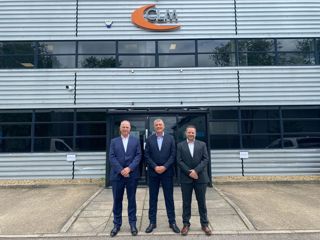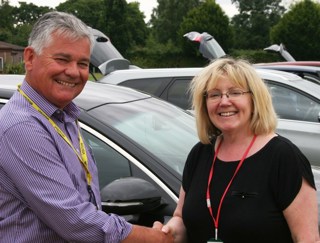While employees still view employer-provided car schemes as a benefit, growing numbers are considering opting out if car tax increases further, a survey from Maxxia Group has found.
The study also found the tax and cost implications of selecting a new car outweigh any environmental considerations. And 78% of employees say they are unlikely to choose an ultra low emission vehicle (ULEV) if the tax incentives are removed.
Researchers contacted employees currently provided with a car under a salary sacrifice car scheme, those driving a traditional company car, and those who had opted to take a cash alternative.
Gordon Calder-Jones, director of Maxxia, said: “The study provided a fascinating insight into the thinking of employees within employee car schemes and those who have opted to take a cash alternative.
“Employee car and cash allowance schemes have been the target of changes to the tax rules by HMRC in recent months, so it was very illuminating to see how employees would react following the announcements made at the last Autumn Statement.
“What was clearly apparent was how finely balanced the decision regarding being part of an employee car scheme and opting out was, following the changes.
"While an overwhelming majority of employees still see the car as an attractive benefit, any further tax increases are likely to tilt the balance dramatically.
“And it was also very evident that financial rather than environmental considerations were of the most importance for employees in making any kind of choice."
The results showed that 92% of employees view employer-provided car schemes as a positive benefit. But 70% say they would consider opting out and taking a cash alternative if car tax levels rise still further, suggesting that the sector is on the brink of a tipping point.
When asked what the main reasons were for remaining part of an employer-provided car scheme:
- 32% of respondents said it was because they got to drive a better car
- 23% said it was because it was tax efficient
- 22% said it was easier than running their own car.
However, being tax advantageous was more important to employees than being environmentally friendly, and some 78% of respondents said they were less likely to choose a ULEV if the tax advantages were removed.
A recent study by the British Vehicle and Rental and Leasing Association showed that only 3% of employees currently choose a ULEV with carbon emissions of less than 75g/km, while the average CO2 emissions level of new cars is currently around 121g/km.
The survey also investigated exactly what employees valued from an employee car scheme – and what they didn’t.
Respondents said that the perfect employee car scheme would have four characteristics.
- It would have a wide choice of vehicles
- It would be tax efficient
- It would include flexibility in terms of length, mileage and vehicle
- And it would provide certainty over cost.
Employees were also aware of the benefits that employee car schemes offered them, including all-inclusive packages including comprehensive motor insurance, full servicing, easy processing and the full support of the scheme provider.
The study asked respondents about their reasons for opting out of employee car schemes.
Some 32% said they were attracted by the cold hard cash with a further 28% saying it was to get a better choice of car.
The study was carried out by independent market research company, ID Insight Consulting, on behalf of the Maxxia Group, the UK arm of the Australian McMillan Shakespeare Group. In the UK, the Maxxia Group now includes CLM Fleet Management, Anglo Scottish Asset Finance, Capex Finance and Eurodrive Motor Finance.


















Login to comment
Comments
No comments have been made yet.